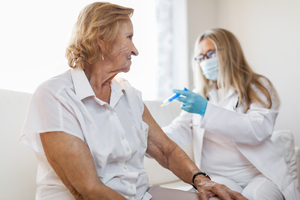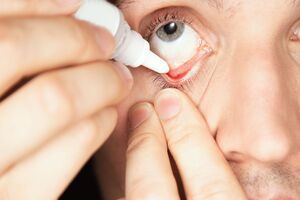Book an STD Test in Green Bay, WI
Own a clinic? Add your location.
Help patients book appointments with you on Solv. It's free!
0 instant-book locations
Washington Street Health Center
Washington Street Health Center
The Neuro Team - Bellin Health
The Neuro Team - Bellin Health
Aurora Health Care
Aurora Health Care
FastCare inside Shopko
FastCare inside Shopko
Prevea Urgent Care
Prevea Urgent Care
Walmart, Supercenter
Walmart
FastCare inside Shopko
FastCare inside Shopko
Fastest Labs, Green Bay
Fastest Labs
Northland Labs
Northland Labs
Prevea Urgent Care
Prevea Urgent Care
Aurora Baycare Medical Center
Aurora Baycare Medical Center
Jasper Doctors Clinics
Jasper Doctors Clinics
Aurora Health Center, De Pere
Aurora Health Center
Prevea Urgent Care
Prevea Urgent Care
Prevea East De Pere Health Center Urgent Care, East DePere
Prevea East De Pere Health Center Urgent Care
Prevea Health Center Pulaski, Pulaski
Prevea Health Center Pulaski
HSHS St Clare Memorial Hospital Prevea Oconto Falls Health Center Urgent Care, Oconto Falls
HSHS St Clare Memorial Hospital Prevea Oconto Falls Health Center Urgent Care
Urgent Care Physicians
Urgent Care Physicians
Prevea Health Center Kewaunee, Kewaunee
Prevea Health Center Kewaunee
Own a clinic? Add your location.
Help patients book appointments with you on Solv. It's free!
Overview of STD Testing in Green Bay
Who should get tested for STDs?
Anyone who is sexually active should consider getting tested for STDs, regardless of whether they're experiencing symptoms or not. This is particularly important for those with multiple sexual partners, those who have had unprotected sex, or those who suspect their partner may have an STD. According to the CDC, regular testing is also recommended for men who have sex with men, as they are at a higher risk for certain infections.
Importance of getting tested
Getting tested for STDs is crucial for several reasons. Firstly, many STDs do not show symptoms in the early stages, meaning you could be infected and not know it. Secondly, untreated STDs can lead to serious health complications, such as infertility and increased risk of HIV infection. Lastly, knowing your status can help prevent the spread of these diseases to others.
Std testing options in Green Bay, WI:
Urgent care and walk-in clinics
Green Bay has several urgent care and walk-in clinics that offer STD testing. These include Prevea Urgent Care, with locations on Voyager Dr and Lineville Rd. These clinics typically offer same-day or next-day appointments, which can be booked through Solv’s website and mobile app.
Primary care providers
Your primary care provider can also provide STD testing. This can be a good option if you have a long-standing relationship with your provider and feel comfortable discussing your sexual health with them.
Free STD testing and community health centers
There are also options for free STD testing in Green Bay. Community health centers often provide these services. However, it's important to note that availability may be limited, and you may experience longer wait times.
At-home testing
At-home STD testing is another option for residents of Green Bay. This allows you to take the test in the privacy of your own home and then send the sample to a lab for analysis.
Prevalence of STDs in Green Bay
According to the CDC, the prevalence of STDs in Green Bay, located in Brown County, is reflective of the national trend, with rates of certain STDs on the rise. Comparatively, Green Bay's STD rates are similar to those in the nearby counties of Lake, Menominee, Lafayette, Gladwin, and Gratiot.
Risk factors related to STDs in Green Bay
Risk factors for STDs in Green Bay are similar to those nationwide. These include having multiple sexual partners, having unprotected sex, and having a history of STDs. Other factors that may contribute to the prevalence of STDs in the area include access to healthcare services and public awareness about the importance of regular testing.
Solv has strict sourcing guidelines and relies on peer-reviewed studies, academic research institutions, and medical associations. We avoid using tertiary references.
STD Testing FAQs
Where should I get an STD test in Green Bay?
In a doctor's office, a health clinic, or an urgent care center, you can get an STD test. If you're experiencing symptoms, it's best to visit a doctor's office, where they can also treat you or issue you a prescription. While some Green Bay clinics and urgent care centers allow walk-in appointments, it's advisable to make an appointment ahead of time to prevent excessive waits.
How long does it take to get STD test results?
Various testing are required for various STDs. Depending on the type of STD test you took, you may receive your results in two to ten days. Some outcomes may be immediately available. Your doctor may be able to diagnose an STD through a physical examination. In some cases, your doctor's office may only contact you if your test results are positive.
How much does an STD test cost in Green Bay?
The cost of STD testing is governed by several factors, including where you are tested, the type of test you need, and if you have health insurance. Some Green Bay clinics may offer free testing or testing on a sliding scale based on your income. Because of the cost, don't put off obtaining an STD test. With your doctor's office, discuss the cost and payment choices. Delaying STD treatment may have catastrophic implications.
Does insurance cover STD testing in Green Bay?
The cost of STD testing is governed by a number of factors, including the location of the test, the type of test required, and whether or not you have health insurance. Some clinics may provide free or sliding-scale testing, depending on your income. Don't let the expense of an STD test deter you from getting one. With your doctor's office, discuss the price and payment choices. Delaying STD treatment could have catastrophic ramifications.
How do they test for STDs in Green Bay?
There are around 20 different forms of STDs, each with its own set of diagnostic tests. No single test exists that can detect all types of STDs. Your doctor can help you figure out which tests you'll need. In STD testing, a blood sample or a urine sample may be used. Your doctor may also take a swab from the inside of your cheek, your vaginal area, or another potentially infected place.
What STDs can be detected by a blood test?
Blood tests are used to diagnose hepatitis B, hepatitis C, herpes, HIV, and syphilis. In a laboratory, a technician examines a blood sample for antibodies that the body has produced in reaction to disease. The virus's DNA can also be detected by several blood tests. Remember that if you've recently been exposed to an STD and your body hasn't yet produced antibodies, you could test negative even if you have the disease.
Can I get a same-day appointment for STD testing in Green Bay?
Many Green Bay, WI urgent care providers offer same-day and next-day appointments, which you may book through Solv. To make healthcare more accessible to everyone, we collaborate with thousands of top-rated local providers. Our physician partners understand that waiting days, if not weeks, for an appointment isn't always the best option, and they share our commitment to simple, accessible health care.
How can I book an STD test on Solv?
To find a healthcare practitioner in your area, simply enter your location and search for "STD test" on our website. A list of providers and available appointments can be found on the following page. Choose the most convenient time and location for you. Make it clear that you've come for STD testing.
How long does an STD test take in Green Bay?
If you have a specific STD, inform your doctor so that the necessary test can be scheduled. Otherwise, they'll help you figure out which tests you'll need. The nurse or doctor simply needs a few minutes to get a blood sample, a urine sample, or a swab from the probable infection site.
Can I test myself for STDs at home?
Although there are several STD home tests available, not all of them are accurate. The accuracy of any STD test is determined by the quality of the sample taken. For home STD kits, a blood sample, a urine sample, or both are frequently required. Because doctors and nurses have more experience collecting samples, traditional in-office STD testing is the most accurate.
Related Searches
Ear Wax Removal in Green Bay
Sports Physicals in Green Bay
A1C Test in Green Bay
Allergy Testing in Green Bay
Basic Metabolic Panel in Green Bay
Blood Test in Green Bay
CMP Test in Green Bay
Cholesterol Test in Green Bay
Diagnostic Test in Green Bay
Drug Test in Green Bay
Glucose Test in Green Bay
Lab Tests in Green Bay
Mono Test in Green Bay
Pregnancy Test in Green Bay
RSV Test in Green Bay
STD Testing in Green Bay
Strep Test in Green Bay
TB Test in Green Bay
Urinalysis in Green Bay
Vitamin D Test in Green Bay
Aetna Urgent Care
Blue Cross Blue Shield Urgent Care
Cigna Urgent Care
COVID-19
Flu
United Health Urgent Care
» All services in Green BayFind STD testing
Nearby cities
Everyday Healthcare, Simplified
Expert advice to help you live your best life







